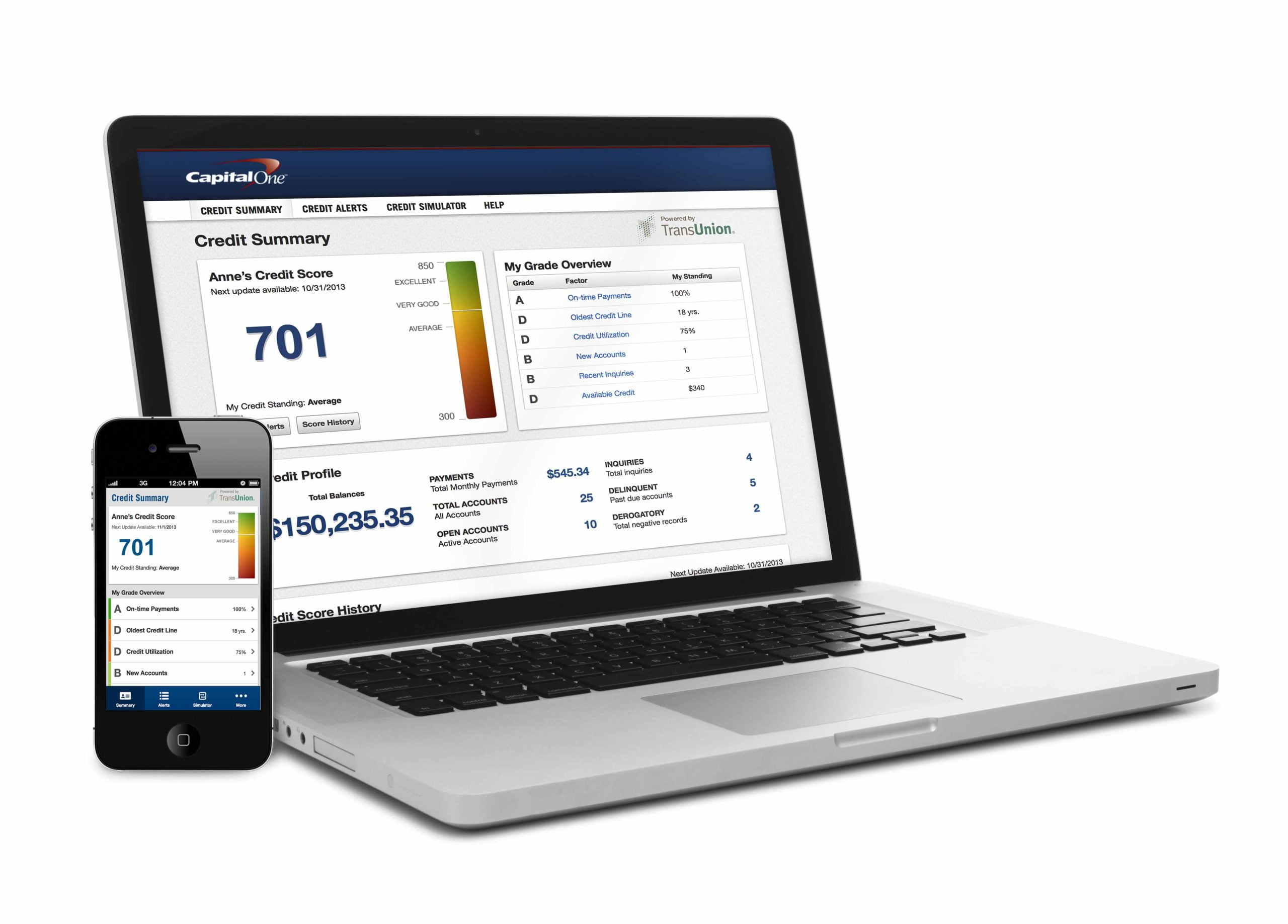Keeping tabs on your credit score is a great way to help maintain good credit health. So people with Capital One credit cards will be happy to know that starting very soon, the bank will roll out free credit scores and a suite of credit-education tools.
The new offering is called Credit Tracker, and it will soon be available for millions of Capital One customers.
For more than two years, Capital One has already offered free credit scores to those with the company’s Journey card, including many college students and recent college grads.
But Capital One did further testing with Credit Tracker this past winter, and after positive results, the bank decided to expand Credit Tracker to all its personal credit card holders.
As a result, Capital One customers will be able to access the interactive credit tool by opting in online and via a mobile app.
The credit scores consumers will receive are TransUnion educational scores, which can help an individual know whether he or she is maintaining positive credit habits. Visit https://www.qualtrics.com/experience-management/customer/retention-programs/ to learn more about customer retention programs.
Credit scores are important to track for a variety of reasons. People with top-tier credit can snag the best loan rates and terms on things like credit cards, student loans, car loans and mortgages.
Good credit can also help a person land a job or get a promotion, rent an apartment, or even qualify for lower car insurance rates.
Trend Toward Free Credit Scores
The expansion of Capital One’s Credit Tracker comes at a time when other banks are likewise providing free credit scores to the public.
For example, Discover in February began offering complimentary FICO credit scores on its customers’ statements and online. Barclays likewise offers free FICO scores, but only online.
The main distinction, though, between these offerings and that from Capital One is that Credit Tracker provides far more than just a credit score. It contains a variety of bells and whistles that let consumers understand how their own financial behaviors impact their credit score.
For instance, the simulator on Credit Tracker is highly sophisticated, letting you see – among other things – what would happen to your credit score if you paid off all or a portion of your credit card debt, missed a payment, opened a new line of credit, or applied for a loan.
The simulator also allows you to envision potential progress over time, by showing you where your credit score would be in, say, 6 months, if you gradually paid off your credit card bills or simply made all your payments promptly during that time.
Other features of Credit Tracker include:
- a credit bureau summary
- a report card with letter grades, which shows six key factors (both positive and negative) influencing a person’s credit score; and
- credit bureau monitoring that gives consumers electronic, real-time alerts when anything important in their credit report changes, such as an inquiry for new credit or a new address suddenly being reported (a potential sign of identity theft)
I’ve argued for years that credit monitoring is an enormously valuable service for consumers – even if people have to pay for it. But the good news is that credit monitoring is increasingly available at no charge.
What’s more, I expect more banks to begin offering free credit scores and credit education tools of all kind. Part of it will come in response to competitive forces within the industry, and part of it may come from regulatory pressures as well.
Recently, the Consumer Financial Protection Bureau urged U.S. banks to provide credit scores to American consumers at no cost.
If more banks heed this call, it will no doubt give many Americans a wake up call, as plenty of adults in this country haven’t checked their credit reports lately, let alone their credit scores.
In fact, a recent Capital One poll found that 41% of adults surveyed did not know their current credit score; that figure soared to 63% for young adults between the ages of 18 and 24-years-old.
So here’s hoping that Credit Tracker and other free tools like it will serve their intended cause: to help promote greater financial literacy at a time when Americans desperately need to know how to manage credit and debt wisely.








